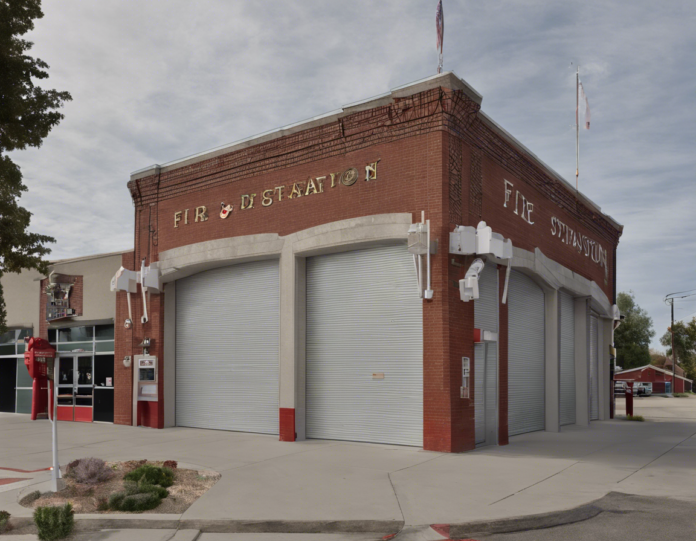As a first responder, ensuring your safety and health is of utmost importance when operating out of a fire station dispensary. It’s essential to have a comprehensive understanding of the potential hazards present in this environment and to follow best practices to mitigate risks. In this article, we will provide you with an inside look at a fire station dispensary and offer safety and health tips for first responders to keep in mind.
Understanding the Environment
Fire Station Dispensary Layout
- Medication Storage Area: This is where various medications and medical supplies are kept.
- Emergency Response Equipment: Equipment such as defibrillators, oxygen tanks, and first aid kits are stored here.
- Administration Area: This area is used for keeping records, scheduling medications, and other administrative tasks.
- Workstations: Areas where first responders can prepare medications and supplies for quick deployment.
Common Hazards
- Chemical Exposure: First responders may come into contact with hazardous chemicals used in cleaning or sterilizing equipment.
- Infection Control: There is a risk of exposure to bloodborne pathogens when handling medical supplies and treating patients.
- Medication Errors: Mistakes in medication administration can have serious consequences for both the patient and the first responder.
- Ergonomic Risks: Repetitive tasks and heavy lifting can lead to musculoskeletal injuries over time.
Safety Tips for First Responders
Personal Protective Equipment (PPE)
- Always wear the appropriate PPE, including gloves, masks, and goggles, when handling medications or treating patients.
- Regularly inspect PPE for any signs of damage and replace as needed.
- Follow proper donning and doffing procedures to prevent contamination.
Proper Medication Handling
- Labeling: Always check medication labels before administering to ensure accuracy.
- Double-Checking: When in doubt, double-check with another team member to prevent medication errors.
- Storage: Store medications according to manufacturer’s guidelines to maintain their efficacy.
Infection Control
- Wash your hands regularly with soap and water or use hand sanitizer before and after patient care.
- Follow standard precautions, including the use of gloves and other PPE, to prevent the spread of infections.
- Properly dispose of contaminated materials according to biohazard waste disposal protocols.
Ergonomics
- Use proper lifting techniques to prevent back injuries when moving heavy equipment or patients.
- Take regular breaks and stretch to prevent musculoskeletal strain from prolonged periods of standing or sitting.
- Adjust workstations to promote good posture and reduce the risk of ergonomic injuries.
Health Tips for First Responders
Mental Health
- Seek Support: Don’t hesitate to reach out to your colleagues, supervisor, or a mental health professional if you are struggling.
- Self-Care: Engage in activities that help you unwind and relax, such as exercise, hobbies, or spending time with loved ones.
- Recognize Signs of Stress: Be aware of symptoms of stress, anxiety, or burnout and take proactive steps to address them.
Physical Health
- Regular Exercise: Incorporate physical activity into your routine to maintain overall health and resilience.
- Healthy Diet: Fuel your body with nutritious foods to support your immune system and energy levels.
- Stay Hydrated: Drink plenty of water throughout the day to prevent dehydration, especially during emergencies.
Frequently Asked Questions (FAQs)
1. What is the role of a fire station dispensary in emergency response?
A fire station dispensary is responsible for storing and managing medications, medical supplies, and emergency response equipment needed to treat patients during emergencies.
2. How can first responders prevent medication errors in the dispensary?
To prevent medication errors, first responders should always check medication labels, double-check with another team member when in doubt, and store medications according to manufacturer’s guidelines.
3. What are common ergonomic risks for first responders in the dispensary?
Common ergonomic risks for first responders in the dispensary include repetitive tasks, heavy lifting, and prolonged periods of standing or sitting, which can lead to musculoskeletal injuries.
4. How important is infection control in the fire station dispensary?
Infection control is crucial in preventing the spread of infections, especially bloodborne pathogens, when handling medical supplies and treating patients in the fire station dispensary.
5. What resources are available for first responders to support mental health?
First responders can access critical incident stress debriefing (CISD) sessions, employee assistance programs (EAPs), and mental health professionals for support with mental health concerns.
In conclusion, maintaining safety and health in a fire station dispensary is vital for the well-being of first responders and the patients they serve. By understanding the environment, following best practices for safety and health, and being mindful of potential hazards, first responders can effectively navigate the challenges of emergency response while prioritizing their own well-being.

